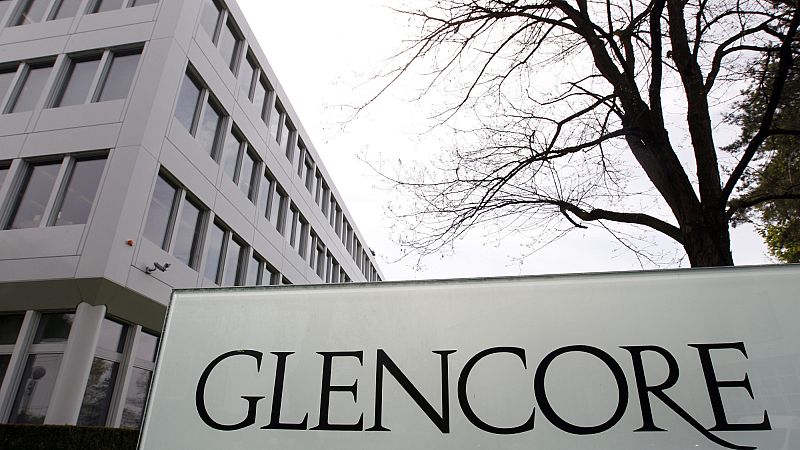Mining giant Glencore's annual results hit hard by slump in coal prices

Mining giant Glencore reported a net loss attributable to shareholders of $1.6 billion (€1.5bn), which was a large fall from the $4.3bn (€4.1bn) net income seen in 2023. This was mainly because of lower average energy coal prices.
However, revenue for the full year 2024 increased 6% to $230.9bn (€221.4bn). Adjusted earnings before interest, taxes, depreciation and amortisation (EBITDA) in 2024 dropped 16% to $14.4bn (€13.8bn).
Glencore's share price fell 6.9% early in trading on Wednesday.
Marketing adjusted earnings before interest and taxes (EBIT) came up to $3.2bn (€3.1bn). This was at the top of Glencore's previously shared long-term guidance of $2.2bn (€2.1bn) to $3.2bn (€3.1bn). However, it was still 8% lower than in 2023.
Calmer energy markets offset demand
Although the Metals and Minerals division did well, gains were offset by energy markets normalising from the high volatility seen in the past couple of years.
Similarly, industrial adjusted EBITDA also fell 20% in 2024 to $10.6bn (€10.2bn). This was mainly because of lower energy coal prices as well, however, higher annual earnings in the zinc business offset decreases somewhat.
Adjusted EBITDA mining margins were 45% in steelmaking coal, 28% in metals operations and 32% in energy coal.
The company announced a 'top-up' share buyback of $1bn (€0.9bn), while also recommending a 'base cash distribution' of $0.10 (€0.1) per share for 2024. This is expected to come up to about $1.2bn (€1.2bn) in total. In contrast, the base cash distribution for 2023 was $0.13 (€0.1) per share, coming up to approximately $1.6bn (€1.5bn) overall.
Gary Nagle, the chief executive officer (CEO) of Glencore, said in the earnings press release on the company's website: "Operationally, 2024 was a strong year for Glencore. Our Industrial assets delivered full year production numbers within their original guidance ranges, which together with the addition of EVR's steelmaking coal volumes from July 2024, resulted in a c.4% growth in copper equivalent volumes year over year.
"The strength of our diversified business model across our industrial and marketing businesses, which focus on the commodities needed for today and tomorrow, has proved itself adept in a range of market conditions, giving us a solid foundation to navigate successfully the near-term macroeconomic environment and be well positioned for the future."
Glencore considers abandoning London listing
Glencore has also revealed that it is thinking about moving its primarily listing from the London Stock Exchange (LSE) to New York, or even elsewhere, in order to gain a greater valuation.
Nagle said as reported by The Guardian: "Ultimately, what we want to ensure is that our securities are traded on the right exchange where we can get the right and optimal valuation for our stock. There have been questions raised previously around whether London is the right exchange.
"If there's a better one, and those include the likes of the New York stock exchange, we have to consider that."
This move could potentially deal a fresh blow to the LSE, which has seen a number of companies depart in the last several months, such as Flutter Entertainment, CRH and Smurfit Kappa. Other miners such as Rio Tinto have also come under increasing pressure to move their primary listings to other locations, like Sydney.
Laith Khalaf, head of investment analysis at AJ Bell, said in an email note: "Glencore's controversial decision to retain its coal assets last year has had a negative impact in the short term as weaker prices helped put pressure on full-year earnings. Given sticking with coal raised eyebrows among some market observers, Glencore could really do with this looking like a smart business decision sooner rather than later.
"Alongside the results, comments from CEO Gary Nagle suggested the UK market could face a fresh blow to its prestige as he suggested the company might look to shift its primary listing to get a better valuation.
"The unveiling of a new share buyback is also an attempt to boost the stock, although not one which has immediately carried much weight with investors.
"The fact the company's profitability is dictated by volatile commodity prices, over which it has no control, is always likely to be an obstacle to a really premium valuation."
Today

